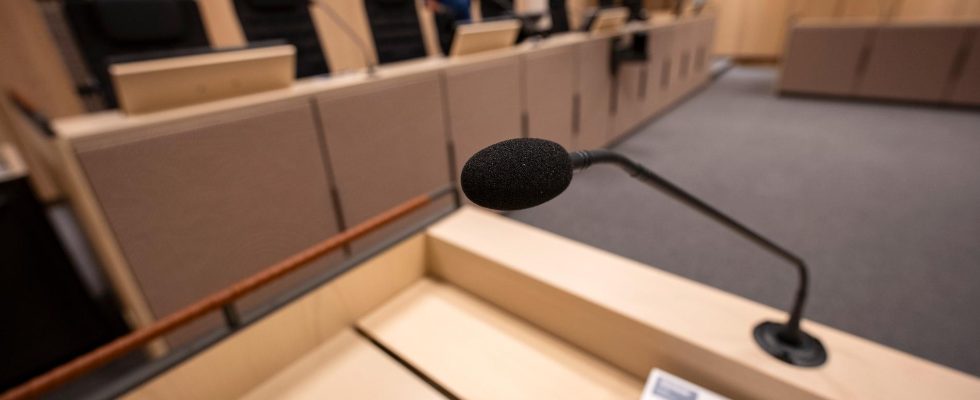unsaveSave
expand-left
full screenPrime crime states that it publishes audio files from at least ten new trials every week, all year round. Picture from the courtroom in Malmö district court. Archive image. Photo: Johan Nilsson/TT
Prime crime provides paying customers with unedited audio files from a large number of Swedish trials. But the app receives harsh criticism when both witnesses and crime victims are named without warning.
– I can only apologize if there is someone who feels exposed, says responsible publisher Johan Apel.
Elin, whose ex-boyfriend was convicted of gross violation of women’s rights for having subjected her to repeated violence and persecution, is one of many who have had to see their trial turned into content on Prime crime.
– It was a total shock. It was terrible, says Elin, whose real name is something else.
Prime crime has previously been criticized by, among others, prosecutor Lisa dos Santos, who described the operation as an “offensive” abuse of the principle of publicity.
“Great interest”
The podcast posts audio files from a large number of trials to paying subscribers.
– It has been shown that there is a great interest from consumers to enter the courtroom and be part of what is happening, he says.
Johan Apel states that they have “thousands” of subscribers. According to him, they want to be on the side of crime victims and have no reason to “expose anyone” the wrong way. He believes that the existing press ethics rules are followed.
– Should it be that we made a mistake, we made a mistake, I can only regret that. Then we must stand for it and change it, he says and continues.
– We will never profit from anyone feeling vulnerable.
“Got to look at it”
According to the press ethics rules, the media must show “the greatest possible consideration” to crime victims, and publication of names must always be carefully considered with regard to them and their relatives.
Do you think you show such consideration?
– We’ll have to look at that. We have obviously made the assessment in this case that we can publish, says Johan Apel, who, however, is not familiar with “Elin’s” case in particular.
He can’t answer why you don’t get in touch with those concerned before posting trials in the app.
– We have a large number of routines about what we do, and we review them continuously. We are constantly working to make the service better.
